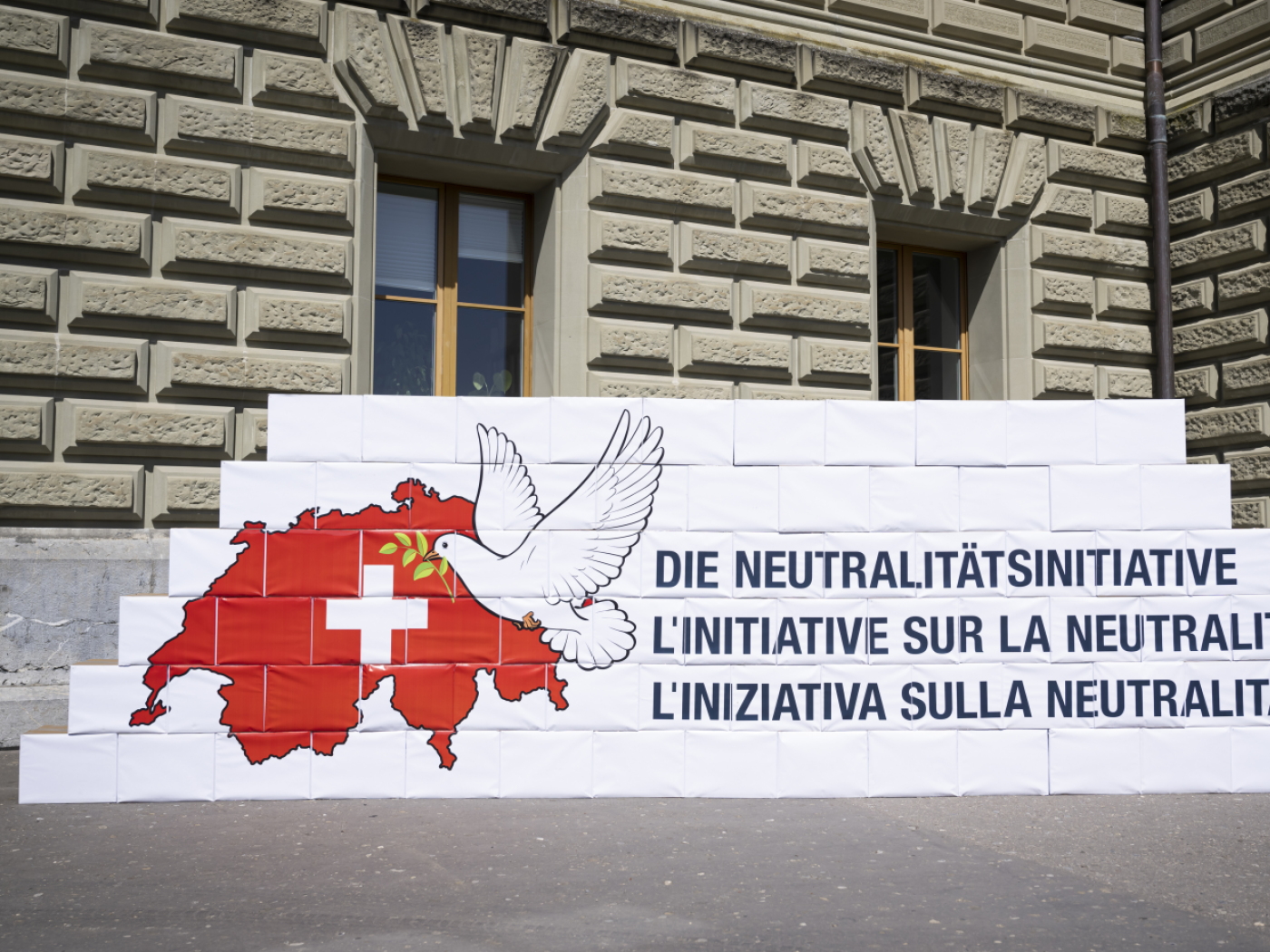
Global minimum tax deal bad for Switzerland, say experts

The decision by the leading industrial nations (G7) to support a global minimum tax of 15% for large corporations is not good news for Switzerland, according to some Swiss economists. Certain cantons in particular would come under pressure.
“The tax havens – often very small states – will suffer, but that’s also the goal,” Jan-Egbert Sturm, a professor of economics at the federal technology institute ETH Zurich, told the SonntagsZeitungExternal link.
“These countries will have to come up with something to stay attractive, also with higher tax rates,” he said, adding that in the medium term Switzerland would have no choice but to comply with the decision.

More
Switzerland fears impact of minimum corporate tax rate
On Saturday the Group of Seven (G7) wealthy democracies reached a landmark accord to support a global minimum corporate tax of at least 15% to deter multinational companies from avoiding taxes by stashing profits in low-rate countries. This agreement could form the basis of a worldwide deal.
G7 finance ministers meeting in London also endorsed proposals to make the world’s biggest companies – including US-based tech giants – pay taxes in countries where they have lots of sales but no physical headquarters.

More
Switzerland responsible for $13 billion in losses to tax evasion globally
Increasingly, income from intangible sources such as drug patents, software and royalties on intellectual property has migrated to these jurisdictions, allowing companies to avoid paying higher taxes in their traditional home countries.

More
What is a good average salary in Switzerland?
Sturm said that if taxes were raised in Switzerland, he would expect to see some tax harmonisation within the country. “Cantonal tax competition will become smaller,” he predicted.
He said sectors that are mobile could migrate as a result, including the commodities industry, which could in fact carry out its trading activities from anywhere.
But he didn’t foresee dire consequences. “Let’s not get too dramatic: for an entrepreneur the tax burden is just one of many criteria that decide on investments,” he said. “Corporate tax isn’t the only thing that makes a location attractive.”
More
‘Certain threat’
Christoph Schaltegger, a professor of economics at the universities of Lucerne and St Gallen, also saw a “certain threat” for those cantons that have positioned themselves competitively, especially the cantons of central Switzerland such as Zug.
“For these cantons there would be a need for action – they would have to raise taxes,” he told Swiss public television, SRFExternal link, on Saturday.
Schaltegger considered the shift of tax powers to market countries more dangerous. “For a country with a small domestic market and relatively few consumers, shifting tax powers from the source to the consumers is a threat.”

More
Zug and Geneva boost attractiveness with corporate tax cuts
However, he didn’t believe that in the long run large corporations would end up paying much more profit taxes on their bottom lines than they do today. “Ultimately we’ll probably just end up with a different tax system, higher statutory tax rates, but a somewhat more porous base than we have today.”
The political pressure, he concluded, would result in many companies trying to take advantage of new depreciation rules or new special tax statuses.
No government comment
Swiss Finance Minister Ueli Maurer has so far not commented on the G7 decision. In April the government said it did not see any major disadvantages for Switzerland. Maurer pointed out that a global minimum tax rate would have to take into account the high environmental taxes paid by companies in Switzerland.

More
Switzerland votes ‘yes’ to overhaul corporate tax rules
While large US companies such as Facebook, Google and Amazon on Saturday said they generally welcomed the G7 agreement – a spokesperson for Google, for example, said “we strongly support the work being done to update international tax rules” – not everyone was happy.
“It’s absurd for the G7 to claim it is ‘overhauling a broken global tax system’ by setting up a global minimum corporate tax rate that is similar to the soft rates charged by tax havens like Ireland, Switzerland and Singapore. They are setting the bar so low that companies can just step over it,” said charity group Oxfam.
“Stopping the explosion in inequality caused by Covid-19 and tackling the climate crisis will be impossible if corporations continue to pay virtually no tax … This is not a fair deal. The G7 can’t expect the majority of the world’s countries to accept crumbs from its table.”

More
Swiss multinationals: global heavyweights in high-risk sectors

In compliance with the JTI standards
More: SWI swissinfo.ch certified by the Journalism Trust Initiative




































You can find an overview of ongoing debates with our journalists here . Please join us!
If you want to start a conversation about a topic raised in this article or want to report factual errors, email us at english@swissinfo.ch.